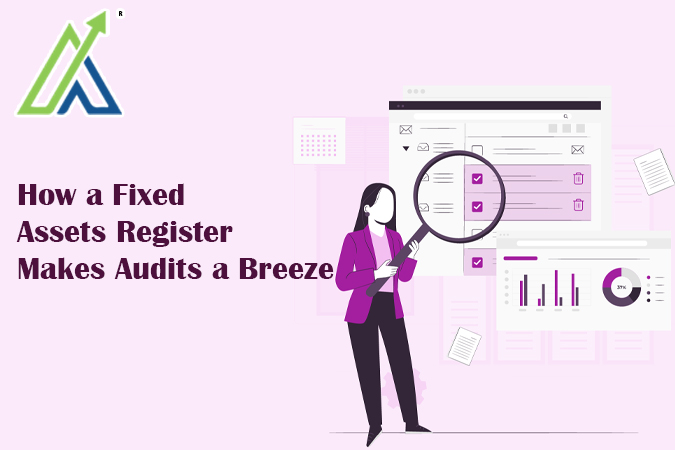Audits can be a nightmare, but they don’t have to be. Enter the fixed assets register, the unsung hero that keeps everything in check. This magical document records every single fixed asset a company owns, providing all the juicy details auditors crave. Let’s dive into how a fixed asset register turns the chaos of audits into a walk in the park, with some sharp examples to drive the point home.
Spot-On Record-Keeping
A fixed asset register nails accurate record-keeping. It logs all the gritty details – acquisition dates, costs, locations, depreciation, you name it. Picture a manufacturing giant tracking million in machinery. Auditors can cross-check these hefty machines with the register without breaking a sweat.
Easy-Peasy Verification
Auditors love a good verification, and the register makes it a breeze. Think of an IT firm sprawled across multiple cities with countless computers. Instead of a wild goose chase, auditors can pinpoint each device’s location and existence in seconds.
Depreciation Drama? Not Here
Depreciation can be a headache, but a fixed asset register keeps it under control. Take a transport company with a fleet of trucks. The register tracks each vehicle’s depreciation over time. Auditors can then easily verify if the depreciation figures match up with the financial statements.
Regulatory Checkmate
Compliance isn’t optional, and a fixed asset register helps you play by the rules. Imagine a pharma company under tight regulations for its equipment. The register offers a detailed account, so auditors can swiftly ensure everything is up to code.
Valuation Made Simple
Asset valuation during audits is crucial, and the register simplifies it. For a real estate firm juggling multiple properties, this means auditors can verify the value of each asset without breaking a sweat, ensuring financial statements are spot-on.
Disposal Drama Handled
Tracking asset disposal can be tricky, but not with a fixed asset register. When a telecom giant sells outdated equipment, the register records every detail. Auditors can then match the sale proceeds with the financial records, no sweat.
Boosts Internal Controls
A fixed assets register isn’t just about audits; it strengthens internal controls too. A hospital managing pricey medical equipment can use the register to ensure assets are used efficiently and discrepancies are flagged. Auditors love this kind of clarity.
Fraud? Not on This Watch
Detailed asset records mean less chance of fraud. An educational institution can track everything from computers to lab gear. With clear records, the likelihood of assets going missing or being misused drops, making auditors’ lives easier.
Smooth Audit Prep
Prepping for an audit is usually a slog, but a fixed asset register speeds thing up. A retail chain with stores all over can get ready for an audit faster. Auditors get quick access to asset info, saving everyone time and headaches.
Questions to Understand your ability
Ques1: What does a fixed asset register bring to audits?
- Chaos
- Efficiency
- Confusion
- Panic
Ques2: What key detail does a fixed asset register track?
- Revenue
- Inventory
- Depreciation
- Sales
Ques3: What does a fixed asset register ensure for a pharma company?
- Sales
- Compliance
- Innovation
- Hiring
Ques4: What risk is cut down by a detailed fixed asset register?
- Costs
- Revenue
- Fraud
- Taxes
Ques5: What part of the audit does a fixed asset register streamline?
- Sales
- Hiring
- Planning
- Prep
Conclusion
A fixed assets register is the MVP of audits. It ensures meticulous record-keeping, simplifies verification, tracks depreciation like a boss, and keeps everything compliant. It makes asset valuation a cinch, supports strong internal controls, and cuts down fraud risks. And when it comes to audit prep, it’s a game-changer. Whether you’re a high school commerce whiz or a seasoned chartered accountant, mastering the fixed assets register means mastering audits. Keep it tight, keep it accurate, and audits will be a breeze.
FAQ’s
A record of all company assets.
Quickly finds and confirms assets.
Tracks asset depreciation accurately.
Ensures assets meet regulations.
Records all disposal details.
Monitors and manages assets.
Keeps clear, detailed records.
Provides all asset info easily.


